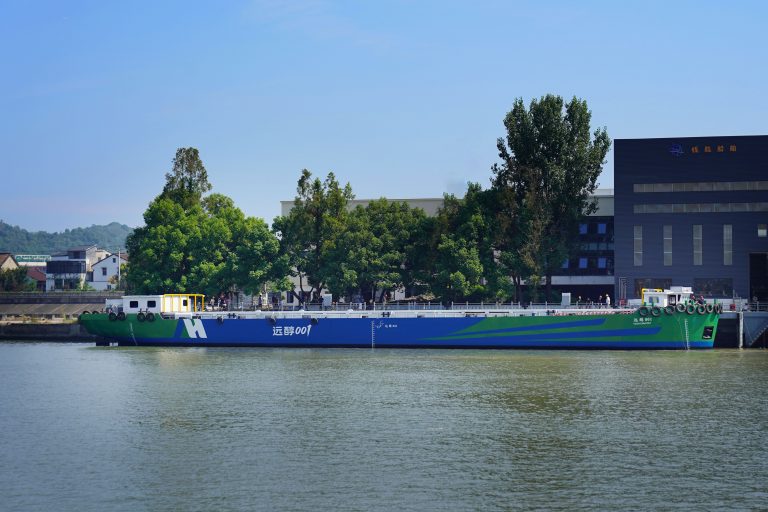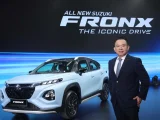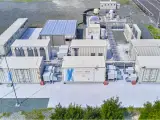
Industrial Decarbonization Takes to the Water: Geely’s Yuanchun 001, the World’s First Methanol-Hydrogen Hybrid Electric Riverboat
September 26, 2025Geely Holding Group has unveiled the Yuanchun 001 in Hangzhou. This isn’t just another green boat—it’s the world’s first methanol-hydrogen hybrid electric riverboat, charting a whole new voyage in industrial decarbonization for maritime transport.
A New Chapter for Clean Shipping
Hangzhou wasn’t picked on a whim. This Yangtze Delta hotspot seamlessly blends centuries-old culture with cutting-edge tech, and its waterways and local support for green pilots made it the perfect launchpad. With over twenty years spent tinkering and testing alternative fuels and hybrid drives, Geely first shook up the roads with methanol-powered cars. Now, they’re taking that know-how to the water, thanks to a proprietary hybrid system tuned for carbon net-zero operation when fueled by green methanol.
How the Methanol-Hydrogen Hybrid Drive Works
At the core lies the methanol-hydrogen hybrid electric drive system. Here’s the scoop: onboard generators burn green methanol—crafted from captured CO₂ and renewables—to crank out electricity. That juice either powers the electric motors in real time or tops up a battery bank for when you need an extra boost. Meanwhile, integrated reformers convert a slice of that methanol into hydrogen, supercharging efficiency on demand. The boat can hop between full hybrid, generator-only, battery-electric or shore-charging modes in a blink. The end game? Lifecycle carbon emissions hit zero with green methanol, and energy use plunges by about 42% compared to diesel peers—propelling us into the realm of zero-emission technology.
Building a Methanol Ecosystem
Of course, tech alone won’t decarbonize shipping—fuel access matters just as much. Geely’s been hard at work expanding the network: by June 2025, China boasted over 800 public methanol refueling stations, and another 3,200 are slated by 2027. That rollout sidesteps the old chicken-and-egg dilemma, giving operators confidence that fuel will be there when they pull in. With refueling times matching diesel and costs staying competitive, green methanol is shaping up as a scalable, cost-effective clean fuel—especially on inland and short-sea routes.
Strategic Ripples Across the Industry
The Yuanchun 001 isn’t just a one-off showboat—it’s proof that you can tackle cost hurdles, tightening regulations and investor hunger for clean shipping head-on. As the International Maritime Organization cranks up emissions rules and carbon pricing, fleet operators will hunt for real-world decarbonization pathways. This riverboat shows how you can retrofit existing vessels or commission newbuilds without missing a beat, leaning on commercially available fuels and tried-and-true electrified propulsion.
China’s Clean Mobility Ambitions
China is staking its claim as a frontrunner in global clean marine tech. By pairing policy incentives with homegrown R&D champions like Geely, the country is fast-tracking alternatives to diesel bunkers. Aging, polluting inland vessels stand to benefit the most—cleaner air, quieter waterways—and the ripple effects are huge: new green methanol plants, a boom in reformer manufacturing, and service networks that drive investment across sectors, all underpinned by a vision for sustainable energy.
Looking Ahead
The Yuanchun 001’s maiden voyage feels like the overture, not the finale. As zero-emission technology matures and refueling networks expand—both methanol and hydrogen infrastructure—you’ll see more inland and coastal operators hopping on the hybrid methanol bandwagon. Next up: fine-tuning fuel-to-hydrogen conversion rates, cranking battery capacity for longer hauls, and adapting this setup to short-sea cargo ships. Nail those tweaks, and we could see an era where green methanol hybrids are the norm, not the exception.
About Geely Holding Group
Founded back in 1986, Geely Holding Group has evolved into a global automotive powerhouse. They didn’t stop at cars—Geely’s poured resources into alternative fuels R&D, helped build thriving methanol vehicle ecosystems, and pioneered hybrid marine solutions. With stakes in sustainable transportation ventures around the world, they’re steering the future of mobility—on both land and water.



 With over 15 years of reporting hydrogen news, we are your premier source for the latest updates and insights in hydrogen and renewable energy.
With over 15 years of reporting hydrogen news, we are your premier source for the latest updates and insights in hydrogen and renewable energy.